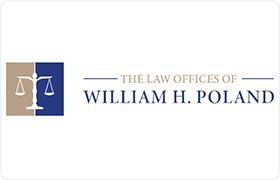Pleasant View Juvenile Law Lawyer, Tennessee
Sponsored Law Firm
-
 x
x

Click For More Info:
-
Law Offices of William H. Poland
408 Franklin St Clarksville, TN 37040» view mapCriminal Defense Law Sound, Professional, & Timely Service
As your attorney, you can be assured that we will use our best reasonable efforts to conclude your matter favorably and to keep you advised of the status of your case.
800-810-3461
Julie Marie Wooten
Estate Planning, Family Law, Juvenile Law, Dispute Resolution
Status: In Good Standing Licensed: 14 Years
Spencer Hamlin
Criminal, Juvenile Law, Bankruptcy, Banking & Finance
Status: In Good Standing Licensed: 13 Years
Pamela Lynn Williams
Juvenile Law, Wills & Probate, Estate Planning, Business
Status: In Good Standing Licensed: 10 Years
 Will Poland Clarksville, TN
Will Poland Clarksville, TN Practice AreasExpertise
Practice AreasExpertise
